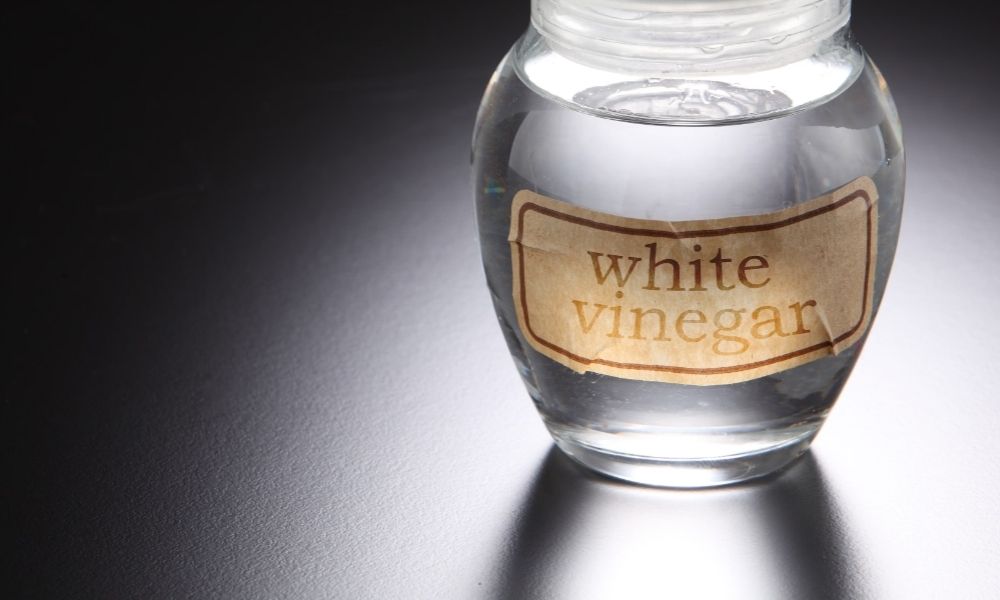What is Vinegar?

Vinegar, often found lurking in the back of our kitchen cabinets, is an irreplaceable staple in our cooking adventures. This is one of your primary condiments in the classic adobo and can put an additional kick to your favorite salad! Vinegar is not only necessary in our kitchen countertops but also offers versatility with its rich history, numerous benefits, and countless uses.
What is Vinegar?
Vinegar is a liquid produced through ethanol fermentation by acetic acid bacteria. Its origins trace back to ancient civilizations, where it was used for a variety of purposes ranging from food preservation to medicinal remedies. The word “vinegar” itself comes from the Old French term "vinaigre," which means “sour wine.”
There are many types of vinegar, such as wine (red and white), distilled, malt, rice, and cider. These types extend to even more variations thanks to the creativity of cooking enthusiasts. Like Raviel’s, your typical wine vinegar can even become spiced vinegar and customized depending on your preference!
How to Make Vinegar
To know what vinegar actually is, what it is made of, and the methods used, you must know the entire process of its making — and it’s simpler than you might think! With a quick, simple, and cost-effective process, you can have homemade vinegar perfect for your liking. It involves two main steps: fermentation and oxidation.
1. Fermentation: Begin with an alcoholic liquid, such as wine, cider, or beer. Pour it into a clean, wide-mouthed container and cover it with a cloth to allow air in while keeping dust out.
2. Oxidation: Over a few weeks, naturally occurring acetic acid bacteria will convert the alcohol into acetic acid, giving you vinegar. The process is complete when the liquid smells and tastes sour.
Remember, patience is key. The longer you let it sit, the stronger the flavor will become.
The Benefits of Vinegar
Considering such an easy preparation method, the number of uses you can make for vinegar is phenomenal. It isn’t just for culinary use, it also has a wide range of health and household benefits that make it a must-have.
Health Benefits of Vinegar
Vinegar has been linked to several health perks. It can help with weight management by promoting a feeling of fullness and may eventually reduce overall calorie intake.
According to a study published in the Journal of Functional Foods, consuming vinegar with a meal can lead to greater satiety and reduced food consumption throughout the day. Additionally, apple cider vinegar is popular for its potential to lower blood sugar levels and improve insulin sensitivity, making it helpful for managing diabetes.
Antimicrobial Properties of Vinegar
Vinegar's acidity makes it a natural disinfectant. It can effectively kill many common bacteria which makes it an excellent alternative to chemical-based cleaning products. A mixture of vinegar and water can be used to descale kettles, clean windows, and even unclog drains. It also removes odors, which makes it perfect for freshening up fabrics and carpets.
Because of its natural properties, it’s also recommended to be used for cleaning pet items and areas as opposed to other types of harsh cleaning products that may cause irritation or even more harmful outcomes.
Aside from home and pet cleaning, vinegar is also known for its ability to kill weeds and keep pests at bay. Gardeners swear by using a solution of vinegar and water sprayed on weeds can eliminate them without the use of harmful chemicals. Plus, it can help acidify soil for plants that thrive in lower pH levels.
Skin and Hair Care Benefits of Vinegar
Dull-looking hair that is brittle and frizzy tends to be more alkaline or have higher pH levels. To combat this, you’ll need an acid substance to help lower pH and bring back the good health of your hair.
Apple cider vinegar, made by fermenting apples with live cultures, minerals, and acids, contains good amounts of acetic acid that can help balance your hair’s pH. It also acts as a natural conditioner, adding shine and removing product buildup.
It doesn’t only balance the pH levels of the hair but also the skin’s, this can help reduce acne, and soothe sunburn.
But remember, due to extreme acid levels of apple cider vinegar, frequent and improper usage can lead to worse cases than good. Make sure to dilute it in water and apply in moderation.
What is the use of vinegar?
Given the variety of benefits and advantages of vinegar, its uses are practically endless. Here are some creative and practical ways to maximize the use of vinegar:
1. Laundry Aid: Add a cup of vinegar to your laundry to act as a fabric softener and deodorizer. It can also help remove stubborn stains and brighten whites.
2. Dishwasher Rinse: Using vinegar as a rinse aid in your dishwasher can prevent spots and leave your glassware sparkling clean.
3. Fruit and Veggie Wash: Soak your produce in a mixture of water and vinegar to remove pesticides and bacteria.
4. Bug Repellent: Keep ants and other pests at bay by spraying vinegar around windowsills and doorways.
So the next time you face cleaning dilemmas in your home, try to consider using vinegar and it might just solve your problem!
Learn more about the surprising benefits of vinegar:
https://versatilevinegar.org/helpful-articles-and-how-tos/surprising-benefits-of-vinegar/



